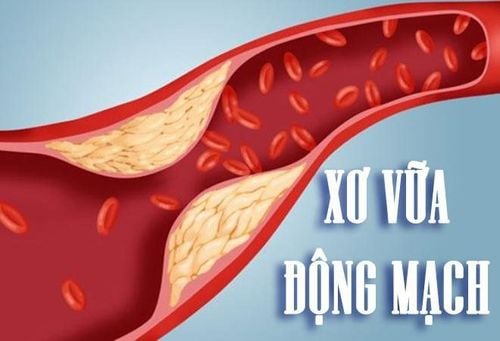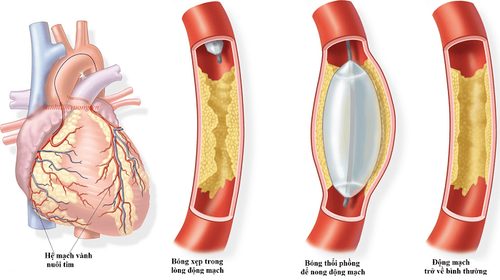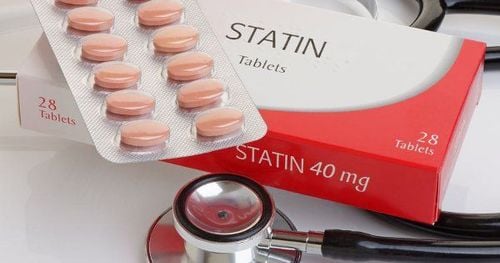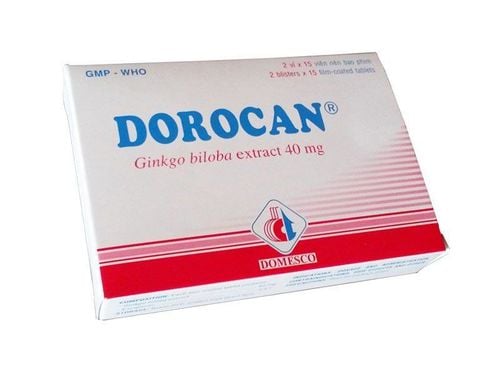This is an automatically translated article.
The article is professionally consulted by Master, Doctor Pham Van Hung - Department of Medical Examination & Internal Medicine - Vinmec Danang International General Hospital.
Ischemic heart disease is considered the leading cause of death from cardiovascular diseases, accounting for about 40% of deaths worldwide. Let's learn more about this dangerous disease.
1. What is ischemic heart disease?
Ischemic heart disease (also known as coronary artery disease, coronary heart disease, ischemic heart disease) is a condition caused by narrowing or blockage of coronary arteries, causing a lack of blood, oxygen, and nutrients. nourishing for the heart.2. What causes ischemic heart disease?
Ischemic heart disease occurs when blood flow to the heart muscle is reduced, due to a partial or complete blockage of a coronary artery. The cause of myocardial ischemia is mainly due to atherosclerosis, which narrows or completely blocks the blood vessels that feed the heart, resulting in an inadequate supply of oxygen to the heart muscle. Some other causes of coronary artery spasm leading to myocardial ischemia are smoking, stress,...
Nguyên nhân gây thiếu máu cơ tim chủ yếu do xơ vữa
3. Who is susceptible to ischemic heart disease?
People who are prone to ischemic heart disease include:Men > 45 years old, women > 55 years old (because women < 55 years old often menstruate, the ovaries also secrete hormones that have a protective effect). vascular endothelium and lower blood lipids, so there is less risk of ischemic heart disease). Smoke. Hypertension. Diabetes. Sedentary lifestyle, sedentary. Constant stress and anxiety.
4. Manifestations of ischemic heart disease?
Ischemic heart disease includes 2 types: the form without chest pain and the form with chest pain, with different symptoms:The form without chest pain: also known as silent ischemic heart disease, common in diabetic patients, the elderly. The patient did not have chest pain at all, the disease was detected only when doing an electrocardiogram. Therefore, most patients have subjective psychology, do not care about treatment, leading to a very high risk of complications of myocardial infarction and sudden death. Possible chest pain: Pain in the left chest in front of the heart, sometimes just discomfort or a feeling of pressure behind the sternum, spreading to the neck, jaw, left shoulder and left arm. The pain is usually relieved by rest or by sucking or instilling a coronary vasodilator. May be accompanied by palpitations, palpitations, shortness of breath, sweating, nausea, vomiting, dizziness... Duration of pain is usually only a few seconds to a few minutes (usually no more than 5 minutes), if If it lasts more than 15 to 20 minutes, a heart attack should be considered and you should see a doctor immediately. In the early stages of the disease, chest pain appears only with exertion (after heavy work, after walking a long distance, when strongly emotional,...), later, the pain appears even at rest. rest. If the pain occurs at rest without any other impact, this is a warning sign of a dangerous condition, the patient needs to be monitored and actively treated to avoid myocardial infarction leading to death. .
5. How to prevent ischemic heart disease?
Ischemic heart disease can be prevented with a healthy lifestyle, proper nutrition and control of the underlying conditions:A healthy lifestyle will help reduce the risk of the disease, including: No smoking Episodes Exercise regularly every day, exercise with sufficient intensity, suitable for personal fitness. Maintain ideal weight, avoid overweight and obesity. Reduce stress as much as possible. Reasonable diet: limit saturated fat, eat a lot of whole grains, fruits, vegetables... Treatment of underlying diseases that increase the risk of ischemic heart disease (such as diabetes, increased risk of heart disease). blood pressure, hypercholesterolemia).

Lối sống lành mạnh phòng ngừa bệnh tim thiếu máu cục bộ
6. Is ischemic heart disease treatable?
Ischemic heart disease is treatable. Depending on the specific case, the doctor will give appropriate indications, such as angioplasty and stenting (percutaneous coronary intervention - PCI), if severe, coronary artery bypass surgery,...Ischemic heart disease, if not treated well, will lead to many complications, the most serious being sudden death due to myocardial infarction. At Vinmec, the coronary examination package has been effectively implemented with the aim of screening and treating the risks of ischemic heart disease.














